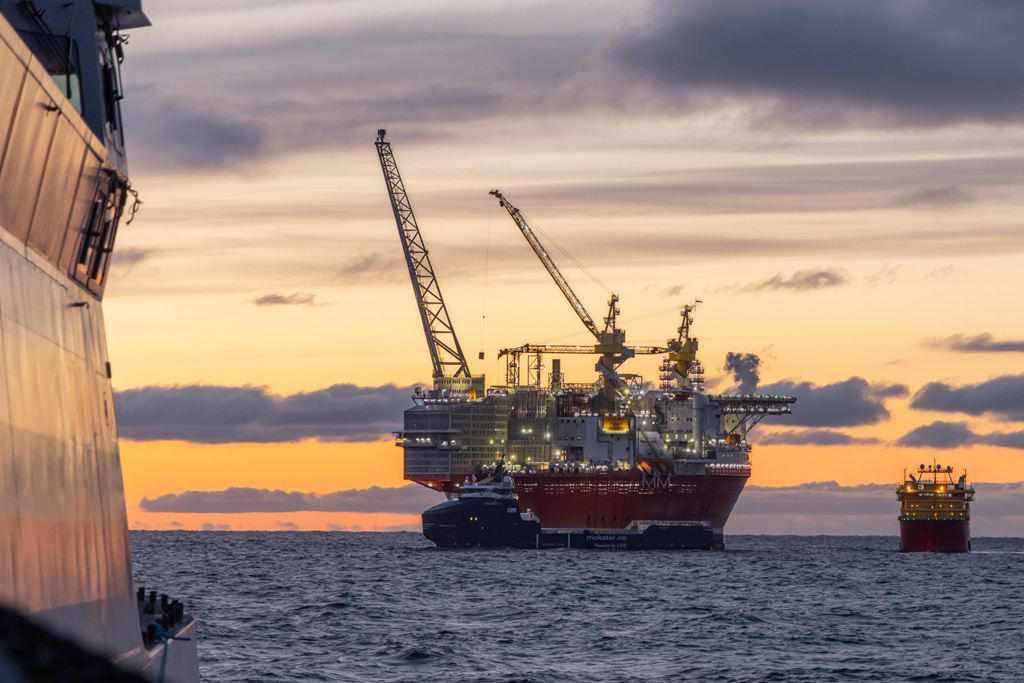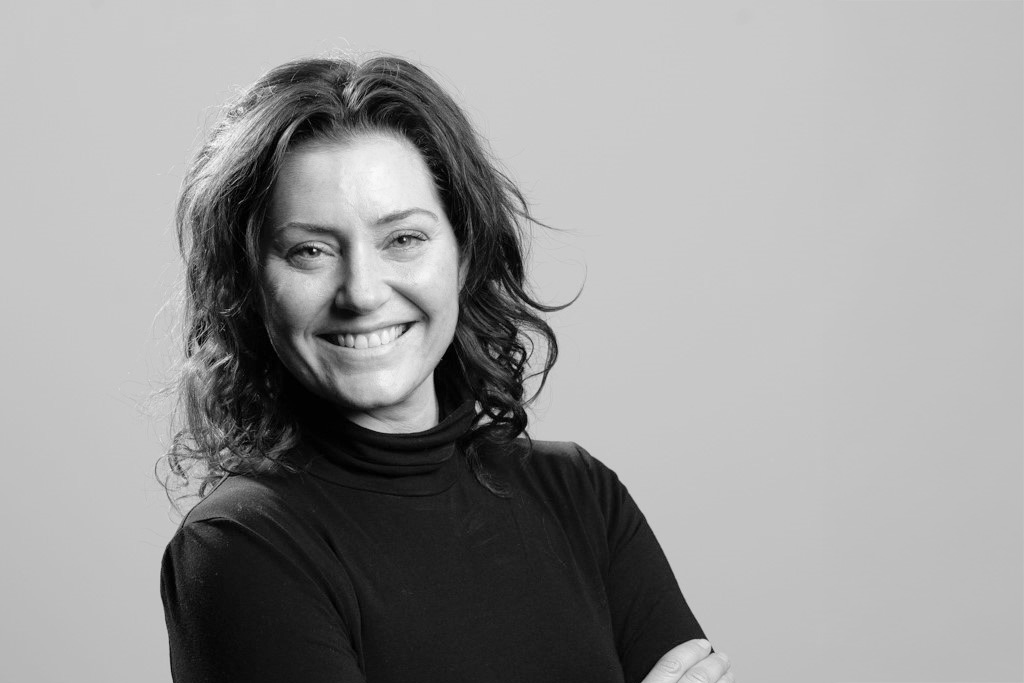Responding to risk
A more serious threat landscape impacts the work on safety and security within the petroleum industry. Vår Energi is keen to focus on where the company can play a pivotal part: Preventing and reducing consequences.

- Security
In the national threat assessments from the Norwegian Police Security Service (PST), the National Security Authority (NSM) and the Norwegian Intelligence Service for 2025, unequivocal reference is made to the threat from Russia of potential sabotage targeting critical infrastructure such as pipelines, cables, facilities and plants.
Vår Energi is the operator of several fields on the Norwegian continental shelf, including Goliat, the first manned field in the Norwegian sector of the Barents Sea. The company's director of security and sustainability, Ellen Waldeland Hoddell, takes the new threat assessments very seriously.

Real threat
How is conducting activity in the Barents Sea currently?
"The national threat assessments presented in February carried a grave message alluding to an increased likelihood of sabotage actions against our industry. We take this seriously. At the same time, the threat landscape applies to the entire shelf, and is not an isolated problem for the Barents Sea," Waldeland Hoddell points out.
"We have been present in the Barents Sea for over ten years and have had to deal with Russia being our closest neighbour since the start-up of Goliat," says the Vår Energi director.
"This means that we have always taken into account and been mindful of this threat, but we have never considered the threat of sabotage to be as real as it is now.
Through targeted work on safety and security in the Barents Sea over time, we have established a close and good cooperation with the police and other authorities. We have also established a successful cooperation with relevant stakeholders in Finnmark.
Barents Sea Operations Cooperation (BASOP), a cooperation body consisting of companies with activities in the Barents Sea and Offshore Norge, is a strong example of such cooperation," she says.
"We probably face some different challenges from elsewhere on the shelf, and we definitely observe certain things that are not seen as frequently further south.
I believe the presence of our industry in the Barents Sea is both significant and positive for several reasons. Amongst other things, we contribute to an improved and more holistic situational picture for the High North.
We report what we see, and we take our social responsibility seriously," Waldeland Hoddell emphasizes.

Vigilant employees
How are offshore employees affected by the geopolitical security situation and the changes in the threat landscape?
"The feedback I have received is that our employees feel that it is safe, secure and pleasant to travel offshore to work. They feel that there is a positive dialogue and transparency between sea and land - and that information regarding threat levels, security risks and security measures is communicated in a way that contributes to security and certainty that we are implementing good measures to safeguard security.
We also receive positive feedback from our offshore employees on our regular drills rehearsing the facilities' safety plans and procedures.
In addition, we are fortunate to have vigilant employees at sea who are good at reporting back”, says the director of Vår Energi.
“The key when it comes to the national threat assessments is to translate them into what they mean for us and for our activities. In other words, we must operationalize the information we receive from the authorities and communicate it in such a way that it is understood by everyone working for us. This is important to create a common understanding of the risk landscape and to help each individual to be aware of their own role and relevant vulnerabilities.
At the same time, it is important to focus on what we can do something about. There is little we can do about the threat instigators. What we can do something about, however, is ensuring a good understanding of which values we should protect. Against this backdrop, we must identify, assess and reduce vulnerabilities through targeted measures. As with all other HSE work, it is about working systematically, with continuous improvement over time, to strengthen robustness.”
The impact factor
How does the current geopolitical security situation impact Vår Energi’s safety and security operations?
“We are all impacted, both at a company level and at a private individual level. The outbreak of war in 2022 was a turning point. The change in the threat landscape happened quickly - meaning that we had to respond quickly. We were able to do this because we have worked proactively on security for many years and had good plans in place.
The way we work on security is very transferable to safety. By that I mean that we use many of the same mechanisms and established processes in both areas. We are used to working in a risk-based manner, to managing risk and to ensuring a common situational awareness. Cooperation, participation and interaction are at the very core of what we do.”
What are the success factors for working holistically on safety and security?
“An important success factor is to recognize that the two are closely connected. It is not just HSE people who carry out HSE work, or just security people who carry out security work. Everyone who works at and for Vår Energi must work on safety and security - in operations, projects, logistics, recruitment or purchasing. It is about becoming even better at integrating safety and security into the work processes. We cannot afford to rest on our laurels.
We have a leadership principle at Vår Energi called solve for totality, This is about not viewing the challenges in isolation, but about thinking holistically and doing what is best for the company as a whole.
We must work in an integrated manner and as one. Sharing information and plans. Working systematically over time. And interacting.”

Some differences
How is the industry working on this, and where can improvements be made?
“I have found that there is very good cooperation within the industry and with the authorities. We share a lot of common ground in the way we work and approach challenges. Collaboration is key and clearly one of the industry's great strengths.
However, there are still some obvious differences”, Waldeland Hoddell points out.
“In particular, the fact that some operators are subject to the Security Act and others are not. It's all a bit new to us – and a challenge we must manoeuvre our way around. We need to figure out how to ensure that sufficient and the correct information is shared at the right time. This must be done in such a way that the industry, along with the authorities, receives a coordinated and rapid response to any incidents.”
New times
“As far as possible, we must seek common situational awareness, even though not all information can be shared between different stakeholders. It is important to recognise that adequate situational awareness is created by all the stakeholders on the shelf.
I am certain that we will make this happen, and we are already making great strides in this regard. But there are new mechanisms and challenges which we still need to figure out how to deal with.
An important success factor is to recognize that the two are closely connected. It is not just HSE people who carry out HSE work, or just security people who carry out security work. Everyone who works at and for Vår Energi must work on safety and security - in operations, projects, logistics, recruitment or purchasing.
We must not forget that the trust we have in the industry and in society is valuable and must be protected. There are those who will deliberately set out to influence, create discord and distrust. That is a real part of the threat landscape," says Waldeland Hoddell.
“We have had the privilege of living in times of peace and contentment for a long period of time, but the current reality has shifted. We must acknowledge the situation in which we find ourselves, whilst managing the long-standing trust which has been earned in the best possible manner.
This will continue to serve us well in the future.”